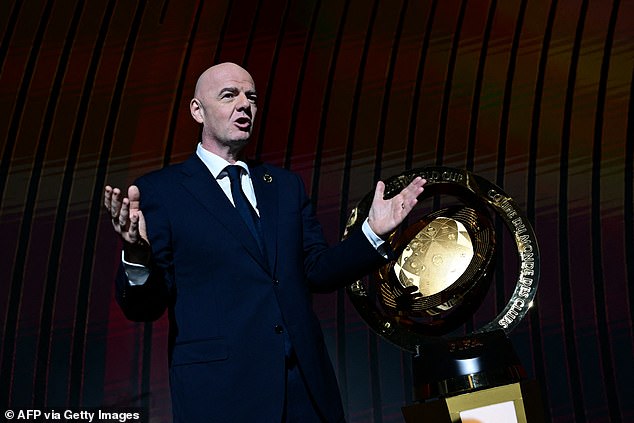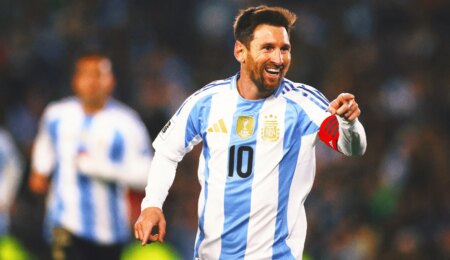ITV’s Bold £0 Bid for Club World Cup Rights
ITV, the UK’s long-standing terrestrial TV giant, made a bold and unconventional move in the race to secure broadcasting rights for the upcoming Club World Cup, submitting a cheeky £0 bid, as reported by The Telegraph. This audacious offer was based on the network’s belief that their extensive reach and willingness to invest in high-quality production could potentially outweigh the absence of financial commitment. FIFA, the governing body of world football, has faced significant criticism for its radical expansion of the Club World Cup, which will see the tournament grow from seven to 32 teams. Despite the controversy, ITV’s proposal to screen the games on their main channels without any upfront cost was a strategic attempt to lure FIFA with the promise of widespread viewership. However, FIFA was unswayed by the offer, and the rights were eventually secured by DAZN, a digital sports streaming platform, in a landmark deal worth $1 billion (£800 million) in December.
DAZN’s Financial Commitment and Controversial Backing
DAZN’s acquisition of the global broadcasting rights for the expanded Club World Cup is a substantial financial commitment that underscores the platform’s ambition to dominate the digital sports media landscape. The deal, worth $1 billion (£800 million), is a significant boost for FIFA, providing the governing body with the financial resources to push through its controversial plans. However, the deal has not been without controversy. DAZN’s platform is partly backed by funding from Saudi Arabia, with a minority stake sold to SURJ Sports Investment, a company linked to the Saudi Public Investment Fund, just last month. This backing has raised eyebrows and sparked discussions about the ethical implications of such a partnership, especially in light of Saudi Arabia’s human rights record. Despite these concerns, DAZN has committed to livestreaming all 63 matches of the Club World Cup for free, aiming to attract a broader audience and solidify its position in the market.
The Tournament’s Financial Windfall for Participating Clubs
The expanded Club World Cup is set to bring a significant financial windfall to the participating clubs, making it an attractive proposition despite the controversies. Manchester City and Chelsea, the two representatives from the Premier League, are expected to earn summer windfalls of up to £60 million each. This potential earnings figure is likely to be the envy of many other top-flight clubs, especially those planning their own summer tours abroad, where they are fortunate to make even 10 percent of that amount. The financial injection will have a notable impact on the Premier League’s financial regulations, as clubs will have to navigate the new influx of cash while adhering to existing rules. Additionally, a solidarity fund has been established to distribute money to the national associations of the 32 participating clubs, with the FA (Football Association) set to benefit from this arrangement. The tournament, scheduled to run from mid-June to July 13, will be hosted across various cities in the United States, including Charlotte, Cincinnati, and Los Angeles, providing a unique and diverse experience for fans and players alike.
FIFA’s Radical Expansion Plan and Criticism
FIFA president Gianni Infantino’s radical plan to expand the Club World Cup has been met with fierce criticism from various stakeholders in the football community. Critics argue that the tournament’s expansion is a cash grab that will put an undue strain on players and disrupt the international football calendar. However, Infantino remains undeterred, pushing forward with the new format that will see 32 clubs from around the world compete in the United States. The decision to host the tournament during the off-season in the US was made to avoid clashing with the congested European club seasons, but it has not quelled the concerns. The expanded format aims to create more excitement and global appeal, but the backlash highlights the delicate balance between commercial interests and the well-being of players and the sport.
Ticket Price Reductions and FIFA’s Explanation
In a move to address the widespread criticism over the initial ticket prices for the Club World Cup, FIFA has significantly slashed the costs. Originally, the cheapest tickets for the semi-final matches were priced at $526 (£423), a figure that was seen as prohibitively expensive by many supporters. The prices have now been reduced to $140 (£113) for those declaring support for a participating club, thanks to the introduction of a new ‘value tier’. Similarly, the ticket prices for the final have been reduced by almost £500. FIFA insists that these reductions are not price drops but the creation of a new category aimed at rewarding loyal supporters who are willing to travel to the US to watch their teams. This adjustment is a clear attempt to make the tournament more accessible and appease those who felt the initial prices were out of reach for the average fan.
The Future of the Club World Cup and FIFA’s Vision
The expanded Club World Cup, set to debut in the United States this summer, represents a significant shift in FIFA’s strategy for growing the global appeal of club football. Despite the initial controversy and criticism, the tournament has the potential to become a major event in the football calendar, offering participating clubs a substantial financial boost and a platform to showcase their talent on an international stage. DAZN’s commitment to livestreaming all matches for free, along with the reduced ticket prices, suggests a more fan-friendly approach, which could help to build a positive relationship with the football community. While the ethical concerns surrounding DAZN’s funding from Saudi Arabia remain, FIFA’s president, Gianni Infantino, is firmly behind the new format, believing it will enhance the sport’s global reach and popularity. The success of this venture will largely depend on how well it is received by fans and the football community, and the coming months will be crucial in determining the tournament’s long-term viability and impact.











